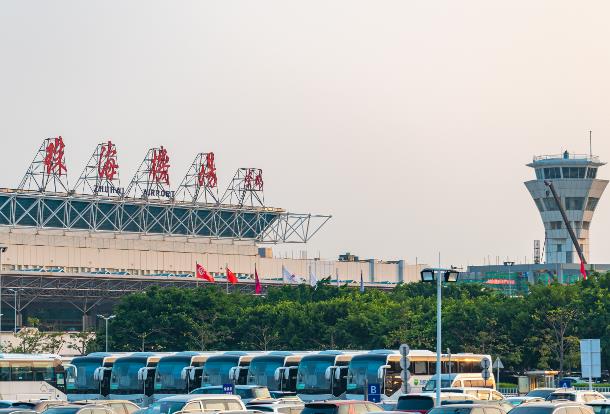The experimental area of the Guangdong Free Trade Zone (FTZ) has been launched, paving the way for tour operators from Hong Kong and Macau, limited to five from each city, to operate group tours for mainland travelers. The zone encompasses Guangzhou’s Nansha, Shenzhen’s Qianhai and Zuhai’s Hengqing.
“Hong Kong-style” tours
Hong Thai Travel Services was the first Hong Kong tour operator to get a taste of the Chinese market since approved by the China National Tourism Administration in 2013 to operate outbound travel for Chinese travelers under the CEPA agreement. Its entry into the Shenzhen market, with the “Hong Kong-style” service as its main selling point, attracted widespread attention. “We have tour group leaders at the front desks to offer specialized consulting to customer. We also offer differentiated products compared to local tour operators’. This is our Hong Kong–style service,” Hong Thai Travel’s general manager in Shenzhen Huizhen Yan said.
Customer response to Hong Kong tour operators has been good. Guangzhou resident Ms. Yao said the tours to Europe, North America and Australia departing from Hong Kong offer more flight options, lower airfare, cheaper tour prices and a greater variety of tour products compared with those departing from Shenzhen or Guangzhou. “Hong Kong operators are also much more professional and knowledgeable and offer more organized itineraries than Chinese operators,” she said.
The deputy director of Guangdong Policy-making Institute’s Travel Industry Research Center, Yibo Lao, agrees that the Hong Kong's travel industry is definitely more mature than China’s. “Hong Kong tour operators have a lot of experience in organizing outbound tours and are better at offering individualized and satisfactory service. They make for a welcome alternative to some Chinese consumers.”
Threshold lowered for foreign-owned travel business
Since its WTO entry, the Chinese government has committed to opening up China’s travel market to foreign-owned companies. In between 2005 to 2007, the minimum registered capital requirement for foreign-owned travel companies was lowered twice to be on par with Chinese companies and the geographical limitation for foreign capital travel company was also lifted. The entry threshold for Hong Kong and Macau tour operators in Guangdong province was further lowered under the 2008 CEPA agreement, and the authority for endorsement was assigned to Guangdong’s provincial tourism department.
Entry challenges for foreign tour operators
Hong Kong’s tour operators have always been eyeing the Guangdong province, which offers the largest customer source in China’s outbound tourism market. Hong Thai’s Ms. Yan said Hong Kong tour operators will face intense pressure breaking into the rich Pearl River Delta regional market dominated by well-established local operators. “They have had a head start and with only one agency, against hundreds operated by our rivals, we are at a disadvantage when it comes to customer facing channels. Some of our most talented guides are also unable to take Chinese tours because of the difference in certification regulations,” she said. As Hong Kong certification is not valid in China, Hong Kong tour guides must also take Chinese examinations and receive the PRC Tour Guide License to conduct Chinese tours.
Local operators unfazed by Hong Kong/Macau market presence
Chinese tour operator Nanhu Travel’s market planning vice president Feng Su said the newly arrived Hong Kong and Macau operators pose no threat to Chinese companies as they are small in scale and limited in business scope. “Chinese companies are also improving their game to counter the keener market competition by forming partnerships with international airlines and hotels and consolidating resources. Foreign tour operators will find Chinese operators a formidable force to take on,” he boasted. (Translation by David)




